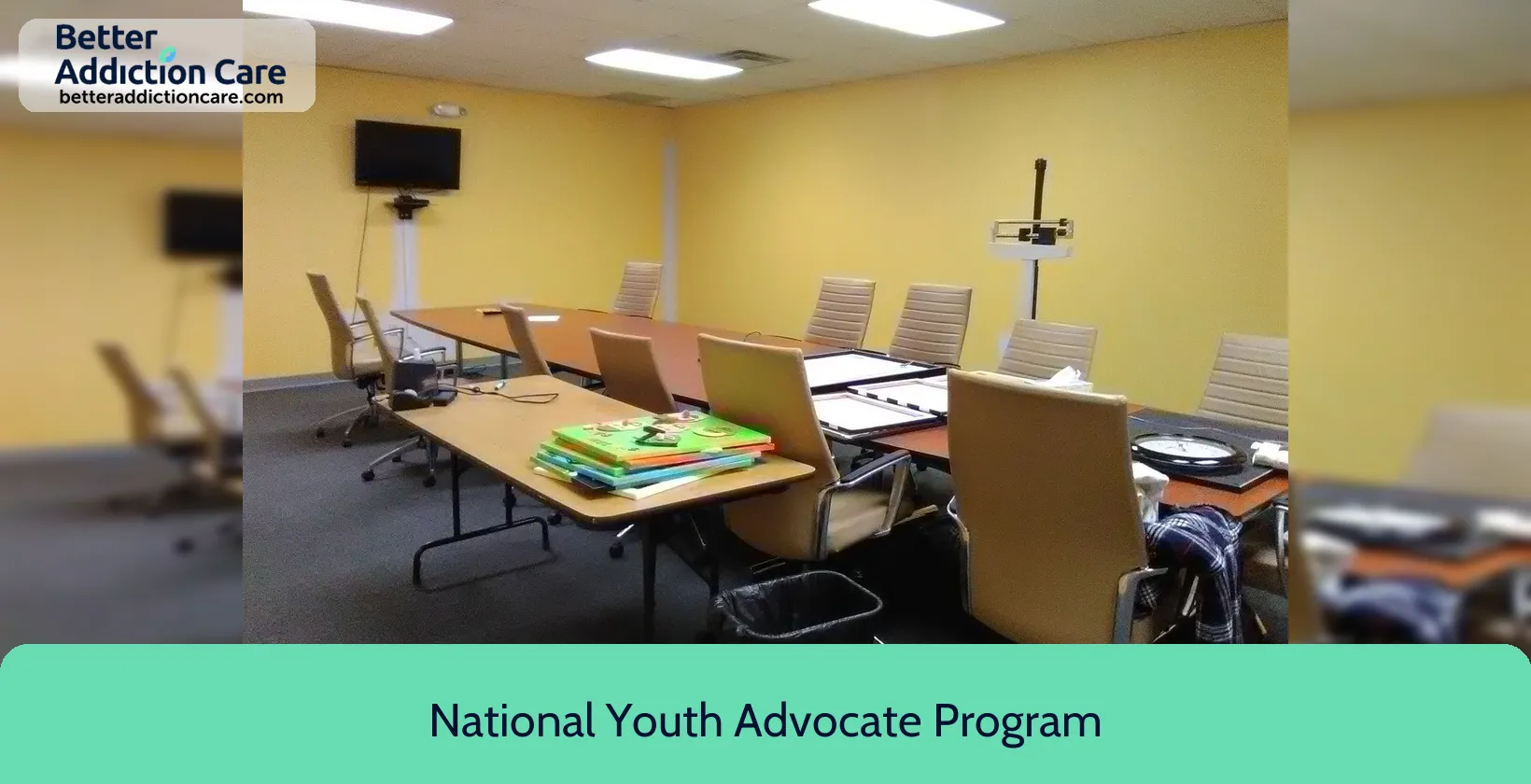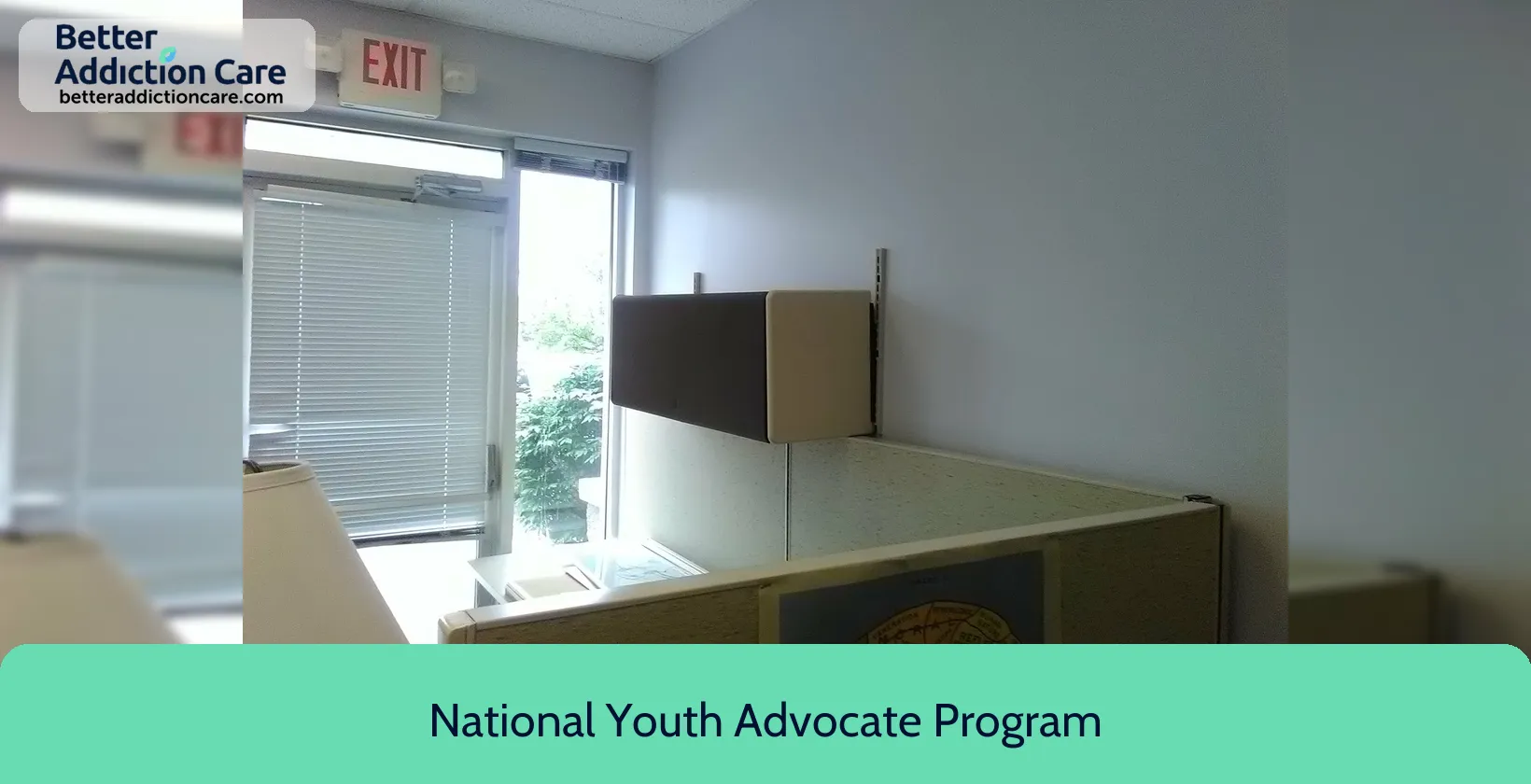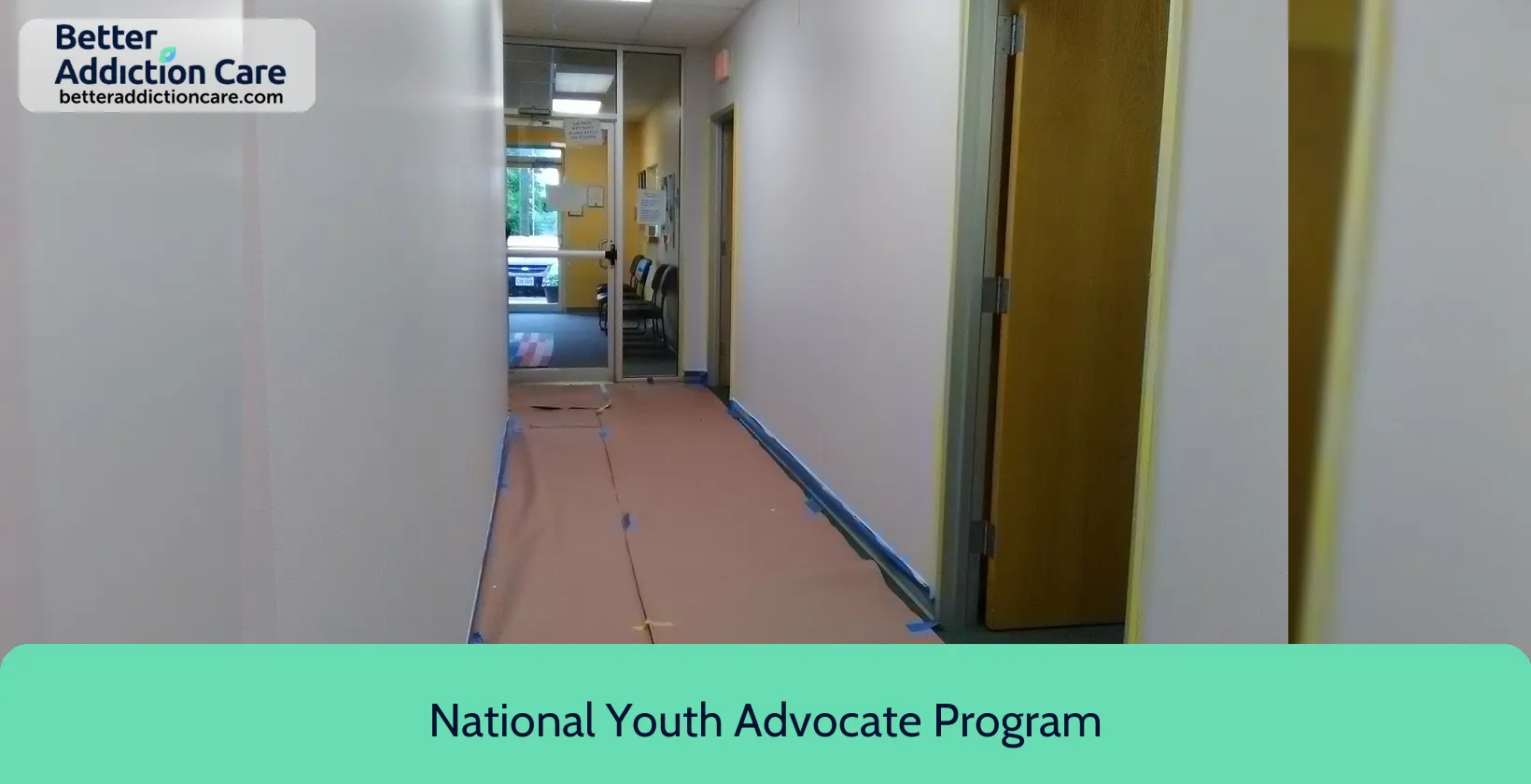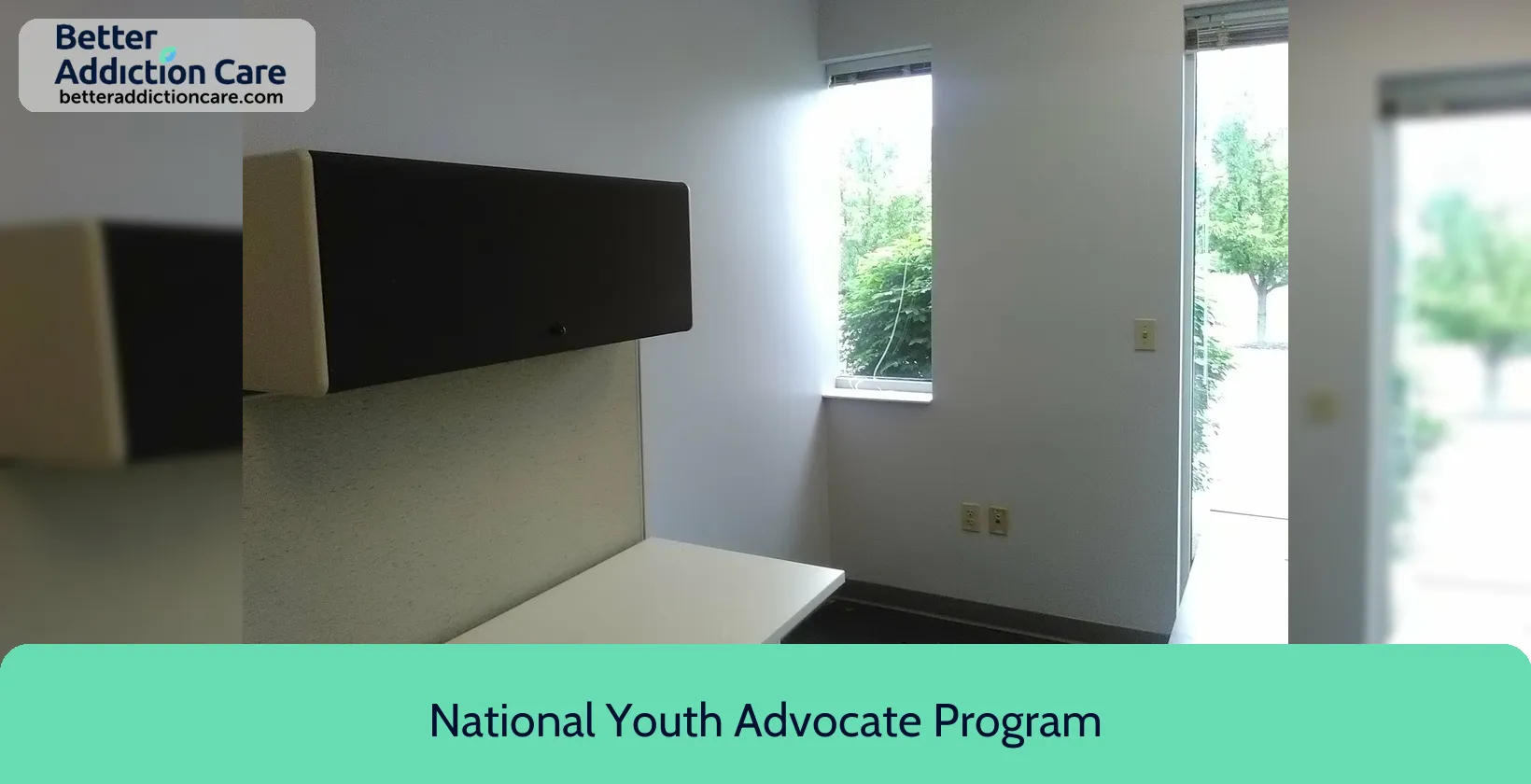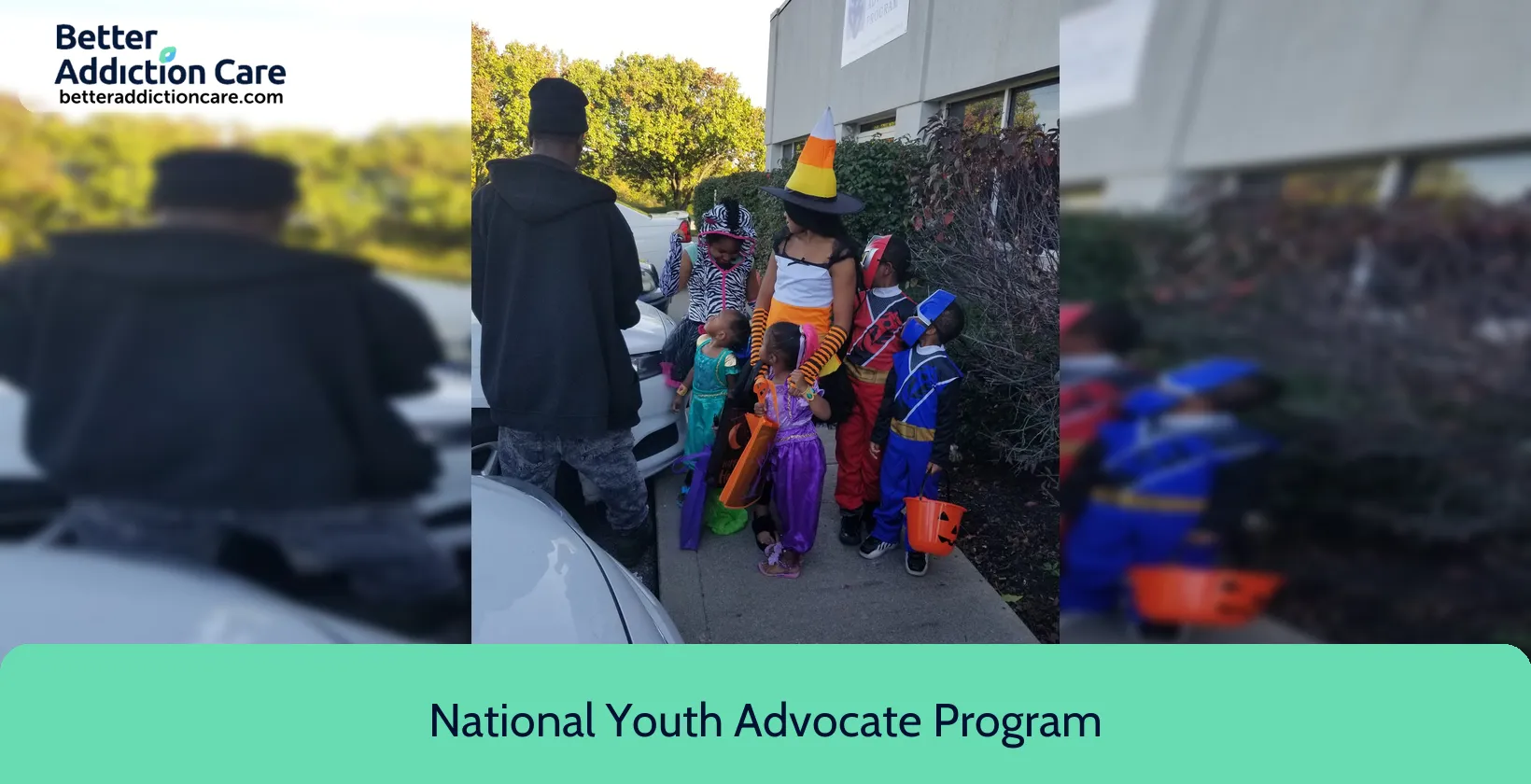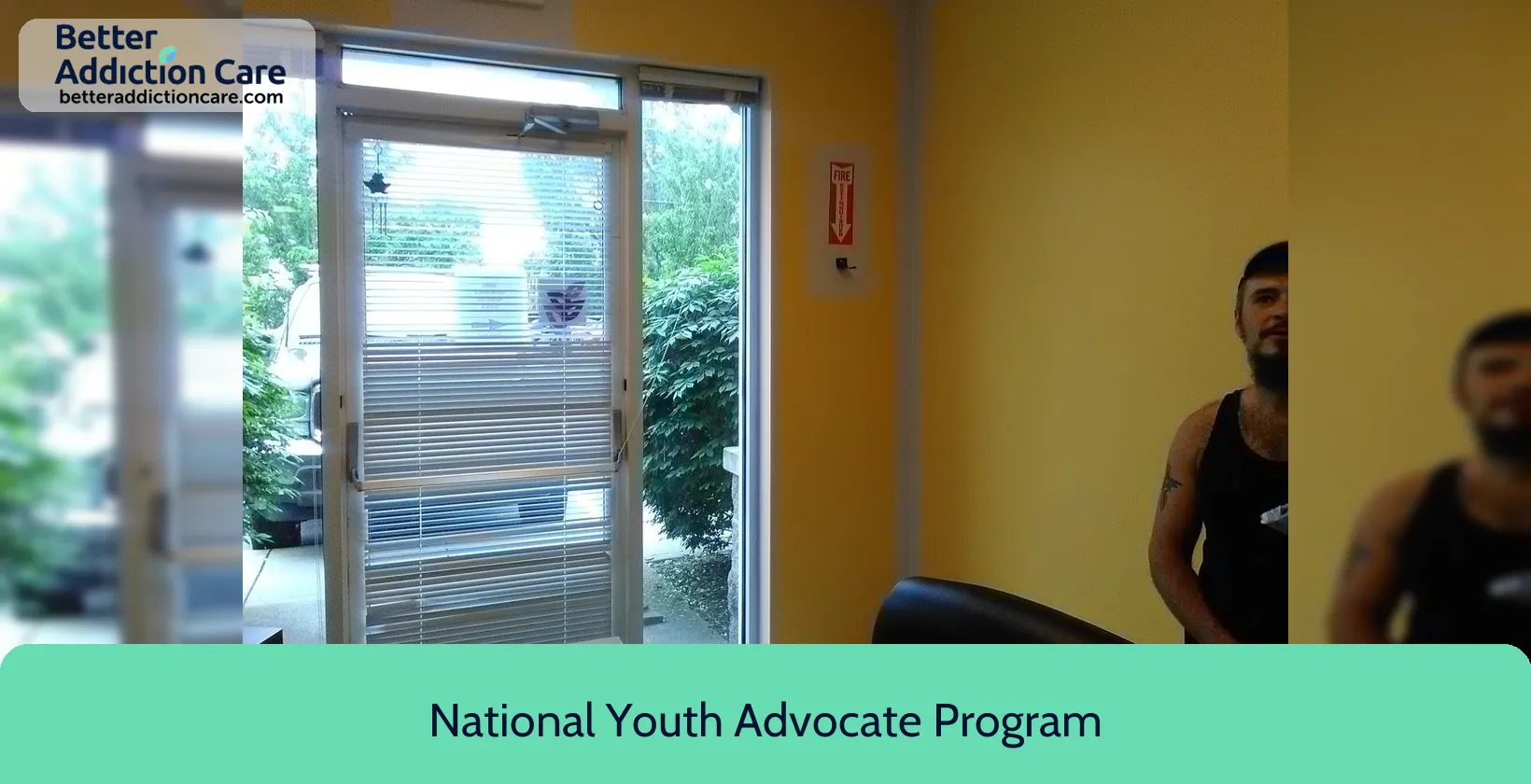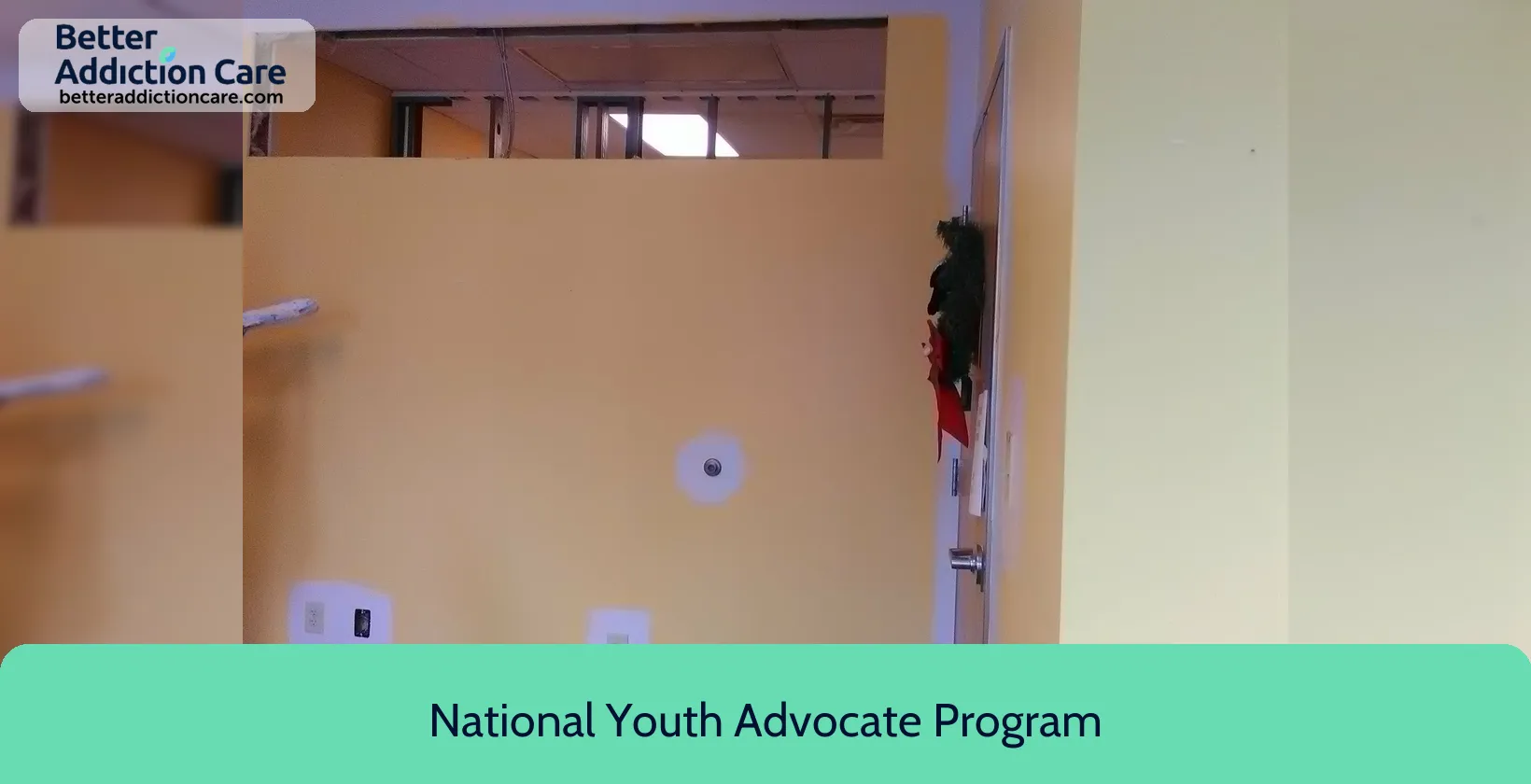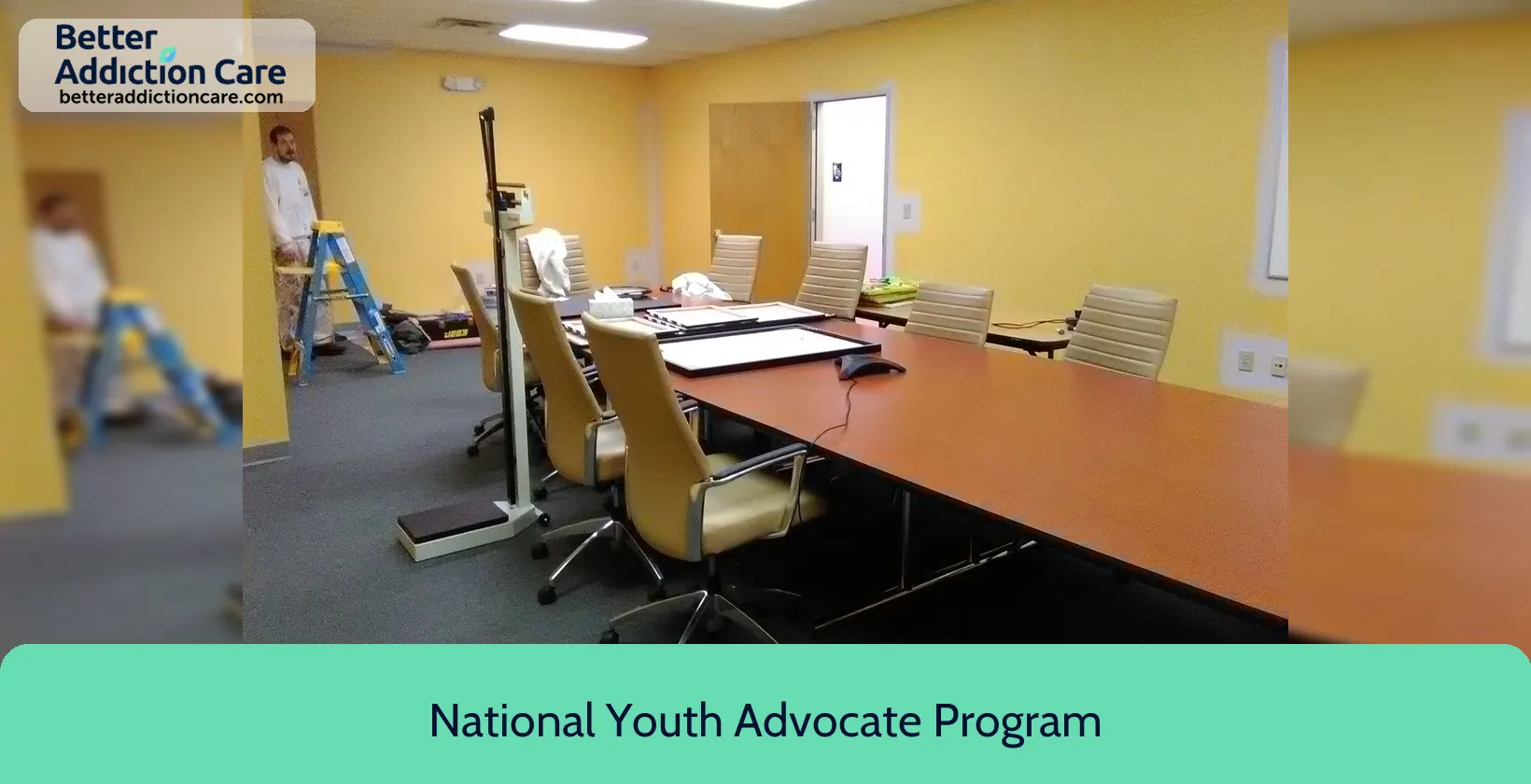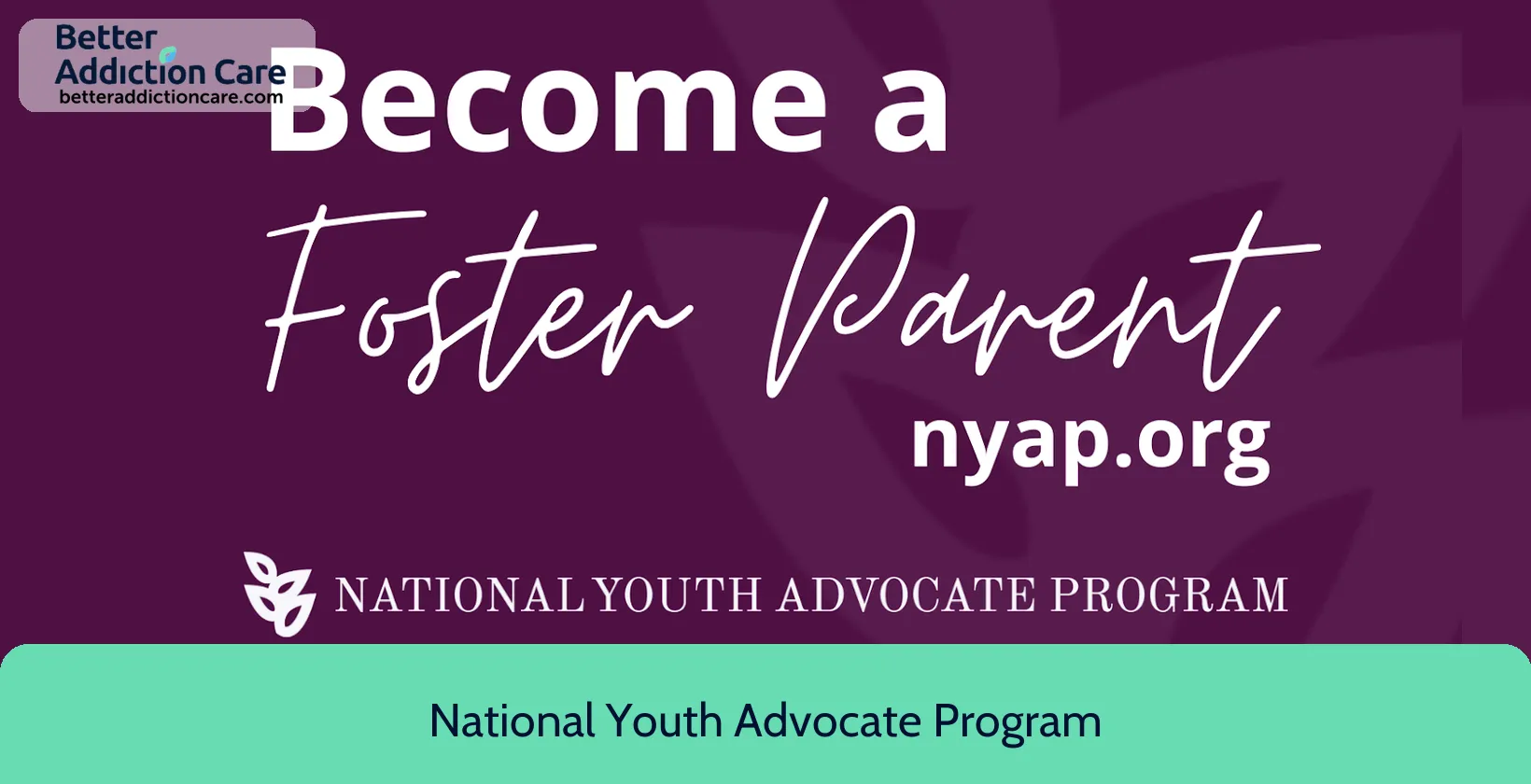National Youth Advocate Program
Overview
National Youth Advocate Program is a mental health treatment center for people seeking treatment near Hamilton County. As part of their treatment modalities for recovery, National Youth Advocate Program provides marital/couples counseling, family counseling, and group counseling during treatment. National Youth Advocate Program is located in Cincinnati, Ohio, accepting cash or self-payment for treatment.
National Youth Advocate Program at a Glance
Payment Options
- Cash or self-payment
- Medicaid
- Medicare
- State-financed health insurance plan other than Medicaid
- Private health insurance
Assessments
- Comprehensive mental health assessment
- Comprehensive substance use assessment
- Screening for tobacco use
- Outreach to persons in the community
- Screening for mental disorders
Age Groups
- Children/adolescents
- Adults
- Young adults
- Seniors
Ancillary Services
- Case management service
- Family psychoeducation
- Psychosocial rehabilitation services
- Therapeutic foster care
- Mental health services
Highlights About National Youth Advocate Program
6.83/10
With an overall rating of 6.83/10, this facility has following balanced range of services. Alcohol Rehabilitation: 8.00/10, Drug Rehab and Detox: 6.00/10, Insurance and Payments: 6.00/10, Treatment Options: 7.33/10.-
Alcohol Rehabilitation 8.00
-
Treatment Options 7.33
-
Drug Rehab and Detox 6.00
-
Insurance and Payments 6.00
Accreditations
State mental health department:
State mental health department accreditation refers to the process of evaluating and certifying the quality and standards of a state's mental health department, ensuring that it provides high-quality services and meets specific criteria for mental health care. The accreditation process is performed by a third-party organization and helps to improve the overall care and treatment of individuals with mental health conditions.
Council on Accreditation (COA):
The Council on Accreditation (COA) is a non-profit that provides accreditation to human services organizations to ensure they meet high standards in service delivery. The accreditation process involves evaluating the organization's policies, practices, and services to meet specific standards.
Treatment At National Youth Advocate Program
Treatment Conditions
- Alcoholism
- Mental health treatment
- Substance use treatment
- Co-occurring Disorders
Care Levels
- Outpatient
- Hospital inpatient treatment
- Regular outpatient treatment
- Aftercare
Treatment Modalities
- Marital/couples counseling
- Family counseling
- Group counseling
- Individual psychotherapy
- Trauma-related counseling
Ancillary Services
Languages
- Sign language services for the deaf and hard of hearing
- Spanish
Additional Services
- Pharmacotherapies administered during treatment
- Discharge Planning
- Drug or alcohol urine screening
Special Programs
- Clients who have experienced trauma
Get Help Now
Common Questions About National Youth Advocate Program
Contact Information
Other Facilities in Cincinnati

7.06

6.62

6.50

6.53

7.36

6.68

7.36

7.36
DISCLAIMER: The facility name, logo and brand are the property and registered trademarks of Hotel California by the Sea 10519 Cinderella Drive, and are being used for identification and informational purposes only. Use of these names, logos and brands shall not imply endorsement. BetterAddictionCare.com is not affiliated with or sponsored by Hotel California by the Sea 10519 Cinderella Drive.
